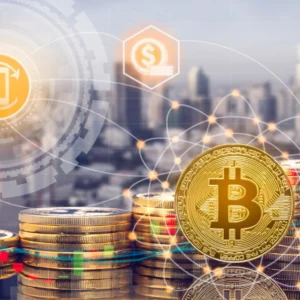If you’re building a crypto product in Singapore—or even just serving users from here—you’ll run into one unavoidable requirement: you need a crypto license in Singapore. Not eventually. Not “once you get bigger.” From the start. The Monetary Authority of Singapore (MAS) doesn’t play when it comes to digital assets. And unlike many markets, Singapore doesn’t let you figure things out as you go. It expects you to know exactly what you’re offering, how it fits under the law, and how you plan to run it like a real financial business—not just a Web3 side project.
The hard truth is, MAS isn’t looking for innovation alone. They’re looking for preparedness. If you can’t demonstrate both, your application won’t make it past the first round.
The Singapore Crypto Licensing Process Starts With Self-Awareness

Before you even log into MAS’s portal, you need clarity—on your business model, on your risk exposure, and on your operational maturity. Singapore’s licensing framework doesn’t work on vague ambition. Under the Payment Services Act Singapore, MAS classifies crypto businesses under “digital payment token services.” If you’re enabling trading, custody, issuance, or anything involving token movement, you fall into their net.
Depending on your scope and volume, you’ll apply as a Standard or Major Payment Institution. But that decision only comes after MAS sees that you understand what you’re doing. Not in theory. In writing. In detail.
So if your business model still changes every week, you’re not ready. If you can’t explain your token mechanics without slides, also not ready. Get specific—or prepare to get stuck.
Crypto License Singapore: MAS Cares More About Your Team Than Your Tech

This is the part many teams misunderstand. You might have a working product. Maybe even users and revenue. But MAS doesn’t care unless your crypto compliance Singapore setup is real.
And by “real,” they mean operational—not outsourced, not vague, and definitely not just a PDF with placeholders. They’ll want to know how your team detects suspicious transactions, how you enforce anti-money laundering standards, and what happens when a flagged wallet shows up.
They’ll also look at your org chart. If your compliance officer is also your CTO, that’s a red flag. If your governance plan is “we’ll figure it out later,” that’s another.
MAS isn’t unreasonable—but they don’t bend the rules for fast-moving startups. They expect your structure to match your ambition.
Submitting Your Application Is Just the Beginning

Once your application is in, the actual review begins. This isn’t just about paperwork—it’s about back-and-forth. MAS will ask for clarifications, request supporting documents, and test whether your written policies match your actual operations.
And they won’t rush. Many teams spend 6 to 12 months in dialogue before hearing back. That’s normal. But how you respond in that period says a lot. If you’re slow, vague, or defensive, it sends the wrong signal. If you’re quick, clear, and collaborative, MAS will notice.
The Singapore crypto licensing process is less about ticking boxes and more about demonstrating readiness under pressure.
What VASP Registration Really Means in Singapore

Once you’re licensed, congratulations—you’ve joined a very short list. But don’t get comfortable. Holding a license comes with obligations: transaction monitoring, quarterly reports, incident response readiness, and audit trails. MAS won’t hover, but they will check.
Fail to uphold your duties, and that license can be revoked. Quickly.
The teams that thrive post-approval are the ones who treat compliance as part of the product—not an annoying department that slows things down.
So if you’re not prepared to build around regulation, not just react to it, even approval won’t save you for long.
Crypto License Singapore Is a Filter, Not a Barrier

Singapore isn’t trying to make life hard for founders. But it is trying to filter out the unserious ones. That’s what the licensing process does. It separates teams that are playing long-term from those chasing the next cycle.
If you’re still figuring things out, wait. Build, iterate, test. But if you’re ready to serve users, move value, and scale in a regulated market—then start now. Because the MAS process won’t be fast. But it will be worth it.





